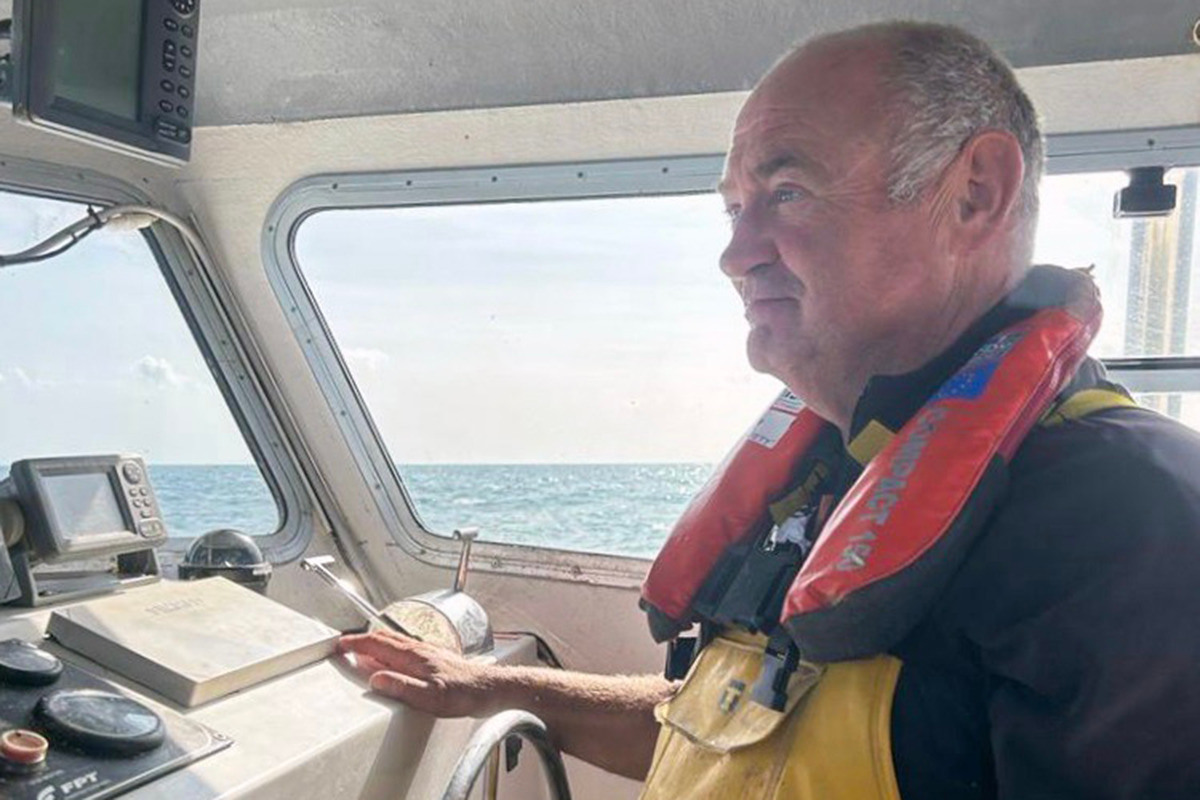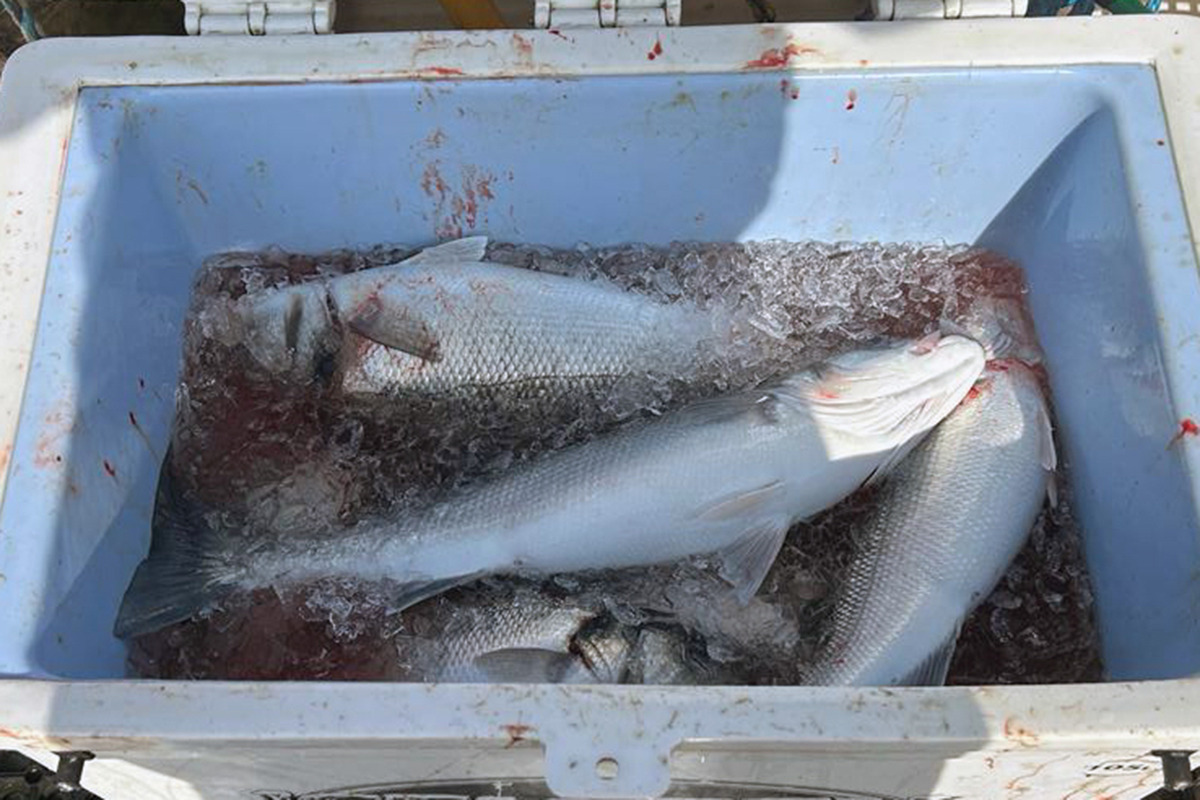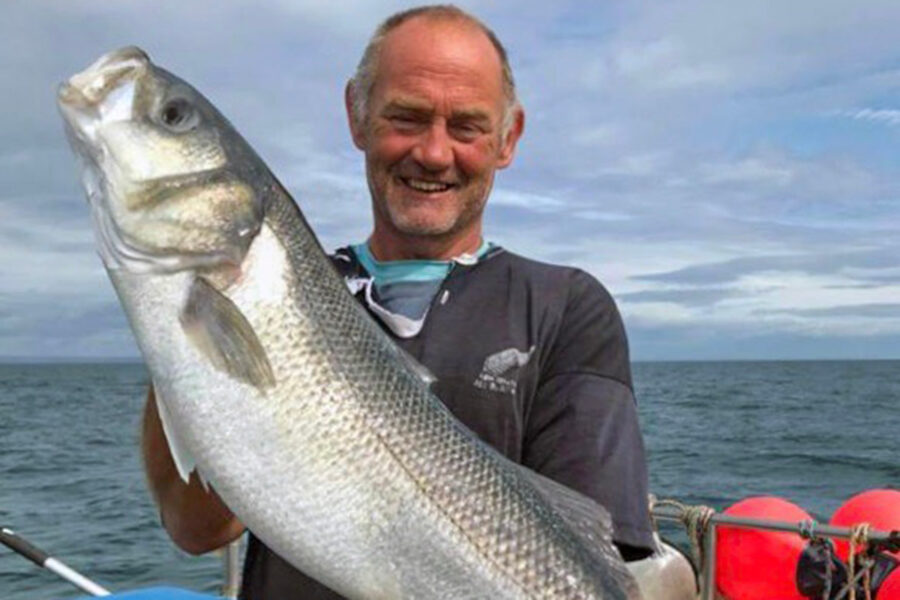Share a day in the life of Brixham inshore fisherman, Rob Adams.
“If you ask my mum, she’ll tell you that I used to crawl into the sea laughing as a baby,” Rob Adams told Fishing News.
“I got into fishing when I was about 15 and had a small boat in Torquay. It went from there, really. I had spells doing other things – but in all honesty, all I really wanted to do was to go fishing.”
Fishing now for Rob is out of Brixham, where he owns two vessels, Sea Fever BM 3, a 9m Cygnus Cyclone, and the 9.8m Jodie B P 977, a Kingfisher 33. A range of methods are employed between the vessels, including potting, tangle-netting and rod and line fishing.
“Twelve months of the year, we’ve got 200 pots out alongside inshore wrecks. That’s for crab in the autumn and winter, and then lobsters and a bit of crab through the summer.
“In the spring we start working cuttle pots – from April or May through to the middle of June. Then we might do a bit of tangle-netting, but from there onwards, really, it’s rod and line fishing for bass, as well as the pots. We’ll also do wreck-netting through the winter.”
The vessels are worked between Rob and fellow skippers Ollie Sinar and Dave Lingham, with the help of three or four crew members who work either boat depending on the time of year and the type of fishing.
“At the moment, Ollie takes the Jodie B – which is normally either two- or three-handed. Then there’s myself and one or two other crew on the Sea Fever. The Jodie B is netting full-time, but when they’re in on the big tides they’ll come and do some time on the Sea Fever.”
Fifty-five-year-old Rob says he still enjoys his job, and both the challenges and the rewards it can bring. “No two days are ever the same. You’re out with nature. I’ve always loved it all, really.
“I enjoy going looking for things. The cuttle fishing in the spring is interesting, that’s quite fun – and with netting, you never know what you’re going to get. I think every day has that sense of anticipation. Whether it’s a good day, or a bad day, you just never know. I also enjoy the rod and lining for bass, which I’ve been doing since I was a teenager.”

Rob has been fishing for more than 30 years, and has seen plenty of changes over the course of his career, including the much-publicised arrival of bluefin tuna. “We started seeing them in around 2015. We saw two big ones by the Channel Light Vessel – that was the first ones we’d seen. This year, there’s a hell of a lot of tuna around. In a way, it’s a nice problem – but the numbers need culling. The 10 boats licensed for 39t – it’s not even scratching the surface.”
Like so many in our industry, Rob doesn’t have a ‘typical day’ as such. However, when it comes to planning where to fish, he can draw on more than 30 years’ experience. “I’ve got around 20 diaries at home. You’ll find some common threads, so we’ll work in places where we know we normally do OK.
“We’ll go wandering as well. If you stop, you start going backwards, so it’s nice to try something different and have that idea of seeing what will happen. Sometimes it doesn’t work, but sometimes you surprise yourself. The thing is to have an open mind and to not be afraid to try something new.”
Whatever the time of year, the two vessels normally aim to depart Brixham an hour before sunrise. “I’d love to say that I get up at 8am every day, go outside the harbour, and come in at 4pm with a boat-load of fish. However, it doesn’t quite work like that. It’s all dependent on how far we’re going – but we normally leave an hour before daylight at any time of the year.
“This time of year, we’re leaving at about 6am and getting in at 6pm to 7pm in the evening. It all depends on how the fishing is, and where we’ve ended up.
“Obviously in the summer, when there’s more daylight, it can be a lot longer days, but that’s the nature of the job. The weather will also dictate how many days we do. Sometimes my wife doesn’t see much of me, but other times she sees too much of me – but that’s just how it is!”

Freshly caught bass. Rob says he has no intention of selling his catch direct from the vessels – which allows him to focus fully on the fishing. “My job, and I’m quite clear about it, is running the two boats and also, put simply, concentrating on the one thing that we do – fishing. Once our job is done and the fish is on the market and the shellfish is with the crab company, that’s it. We don’t have to think about whether Mrs Jones wants five plaice, or somebody wants half a dozen lobsters.”
One aspect of Rob’s job that does stay consistent is the care taken in processing the catch. “The turbot, brill and the other fish caught when tangle-netting, and the same with the bass – it all gets brought aboard, gutted, bled and put into slurry. The catch will stay in the slurry until we get it down to temperature, and then it all gets insulated and packed.
“We don’t land any rubbish. We take a lot of care to make sure we’ve got the quality of catch, as it makes a difference with the prices. The shellfish goes to Dartmouth Crab Company, and the fish from both boats goes on to Brixham market.”
Despite a career spanning more than three decades, Rob’s passion for what he does hasn’t diminished. “There are times when it’s not going your way, and money is flowing out at a rate of knots, and you think: ‘When’s it going to end?’ – but somehow, you always find a way.
“I’m not going to stop any time soon – I still really enjoy what I do. The big question is, what would I do if I did stop fishing?
“So I’m quite happily stuck doing something I love.”
This story was taken from the latest issue of Fishing News. For more up-to-date and in-depth reports on the UK and Irish commercial fishing sector, subscribe to Fishing News here or buy the latest single issue for just £3.30 here.
Sign up to Fishing News’ FREE e-newsletter here.








